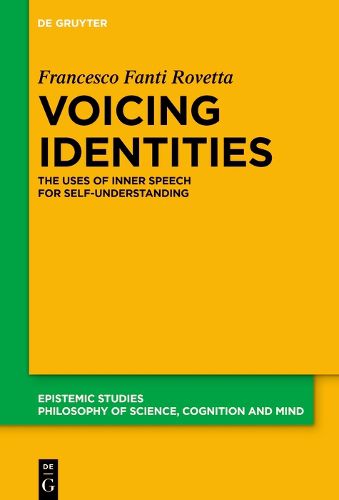Readings Newsletter
Become a Readings Member to make your shopping experience even easier.
Sign in or sign up for free!
You’re not far away from qualifying for FREE standard shipping within Australia
You’ve qualified for FREE standard shipping within Australia
The cart is loading…






We are often asked to describe ourselves. In response, one might propose a few adjectives, or possibly even a brief account of how they became the person they are today. How we develop such self-understanding is a complicated matter involving various cognitive and social processes. Fanti Rovetta contributes to the comprehension of these processes by exploring the role of inner speech, or verbal thought, in self-understanding. Drawing from sociolinguistics, he proposes and applies a novel theoretical framework, a situated approach to inner speech, which emphasizes individual variation, and suggests that each person has a style of inner speaking. Such style of inner speaking constrains the linguistic hermeneutic resources a person can access in thinking about themselves and in making sense of their experiences. Additionally, he investigates the role of inner speech in narrative thinking and in verbal rumination, which are two key mental phenomena related to self-understanding. Throughout the book, the approach adopted is multidisciplinary, integrating philosophical discussion with recent developments in cognitive science, psychology, and linguistics.
$9.00 standard shipping within Australia
FREE standard shipping within Australia for orders over $100.00
Express & International shipping calculated at checkout
We are often asked to describe ourselves. In response, one might propose a few adjectives, or possibly even a brief account of how they became the person they are today. How we develop such self-understanding is a complicated matter involving various cognitive and social processes. Fanti Rovetta contributes to the comprehension of these processes by exploring the role of inner speech, or verbal thought, in self-understanding. Drawing from sociolinguistics, he proposes and applies a novel theoretical framework, a situated approach to inner speech, which emphasizes individual variation, and suggests that each person has a style of inner speaking. Such style of inner speaking constrains the linguistic hermeneutic resources a person can access in thinking about themselves and in making sense of their experiences. Additionally, he investigates the role of inner speech in narrative thinking and in verbal rumination, which are two key mental phenomena related to self-understanding. Throughout the book, the approach adopted is multidisciplinary, integrating philosophical discussion with recent developments in cognitive science, psychology, and linguistics.